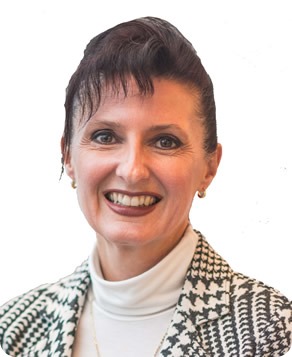MDR-TB is on the rise in a number of regions in the world, because progress towards targets for diagnosis and treatment of multidrug-resistant TB (MDR-TB) is far off-track.
Worldwide and in most countries with a high burden of MDR-TB, less than 25% of the people estimated to have MDR-TB were detected in 2012.
Patients with MDR-TB that are undetected continue to spread the disease in the community, resulting in higher rates of primary transmission of MDR-TB.
In some Eastern European countries, approximately 25% of new cases and 50% of retreatment cases involve MDR-TB strains. A resurgence of MDR-TB in Western Europe is threatened by globalization and EU expansion.
How concerned should we be about this rising incidence?
The 2013 WHO progress report calls for 5 priority areas in order to accelerate progress towards 2015 targets, one of them being “addressing MDR-TB as a public health crisis”.
To achieve this, in high MDR-TB burden countries, increased capacity to diagnose MDR-TB must be matched with supplies of quality drugs and scaled-up country capacity to deliver effective treatment and care (the current 18-24 month WHO standard of care is a regimen that is enormously difficult to roll out successfully and to scale up).
Will the strains become more resistant if left unchecked?
Inappropriate regimens (such as adding 1 new drug to a failing regimen, treatment interruptions, lack of quality assured medicines etc.) coupled with under diagnosis and treatment, will allow drug resistance to continue to rise.
What is needed to tackle MDR-TB? Should efforts be focussing on more effective diagnostics, treatments or preventative measures?
Efforts should be focused on all of these aspects.
What is required at a European level to tackle MDR-TB?
As previously mentioned, increased capacity to diagnose MDR-TB must be matched with supplies of quality drugs and scaled-up country capacity to deliver effective treatment and care.
This will require high-level political will and leadership and more collaboration among partners. With the rise in drug resistant strains, drugs effective against these drug resistant strains are needed to improve treatment outcomes and to reduce MDR-TB transmission.
Is Europe likely to meet its millennium goals for TB by 2015?
The African and European regions are currently not on track to achieve the mortality and prevalence targets. Hence new strategies and new tools will be needed to alter this course.
Janssen is developing bedaquiline because of our deep commitment to global public health and addressing diseases of high unmet need, such as MDR-TB. Based on WHO-recommended treatment outcome definitions applied to week 120 final data, the proportion of patients defined as cured at 120 weeks was 57.6% in the bedaquiline arm vs. 31.8% in the placebo arm (p=0.003) thereby showing that significantly more patients were cured following treatment with bedaquiline versus placebo.
How important will education and awareness be in tackling MDR-TB?
Education and awareness are one component in tackling MDR-TB, along with increased capacity to diagnose MDR-TB (including active case finding) and scaled up capacity to deliver effective treatment and care.
Current treatment success rates for MDR-TB are low (48%), hence fast update of new tools to diagnose and treat more effectively will be key in tackling MDR-TB.
What do you think the future holds with regards to MDR-TB and how do Janssen plan to contribute?
Janssens’ Global Public Health group combines the best in the company’s science and innovative access models with its core business strategy under a single entity to drive better health outcomes, improve quality of life for patients, and sustainably advance health care worldwide.
Bedaquiline was granted conditional approval in the European Union for use as part of an appropriate combination regimen for pulmonary MDR-TB in adult patients, when an effective treatment regimen cannot otherwise be composed for reasons of resistance or tolerability.
Where can readers find more information?
Readers can find more information on the WHO website https://www.who.int/ and http://www.janssen-emea.com/
About Myriam Haxaire-Theeuwes
 Myriam serves as Compound Development Team Leader for Janssen Research & Development Infectious Diseases – Diagnostics BVBA.
Myriam serves as Compound Development Team Leader for Janssen Research & Development Infectious Diseases – Diagnostics BVBA.
She provides leadership for a cross-functional team responsible for the development of therapies for pulmonary multi-drug resistant tuberculosis (MDR-TB).
Myriam is a member of the Joint Steering Committee for the Janssen/TB Alliance collaboration and coordinator for Janssen’s involvement in the Critical Path to New TB drug regimens (CPTR), set up to accelerate the development of new TB regimens.